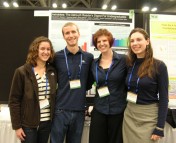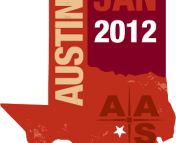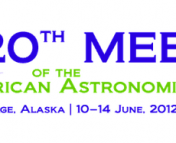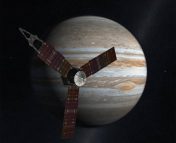Disclaimer: This article was edited by a group of Astrobites authors. It is not intended to be representative of the views of the AAS (which supports Astrobites) or all astronomers.
Over the years, we’ve released many statements encouraging our community to consider how we deal with abuse. With each statement, we’ve been met with hundreds of Twitter likes, tens of retweets, followed quickly by silence and then slowly, but inevitably, the news of yet another harm that we feel obliged to comment on again.
Earlier this April, we offered some open-ended questions in hopes of sparking positive, real change in our community to prevent harm like we’ve detailed in our statements and individually, anecdotally, know all too well. We copy them again here, with minor adjustment:
- One of the recommendations from Astro2020 was for “professional societies [to] ensure that their scientific integrity policies address harassment and discrimination by individuals as forms of research/scientific misconduct.” How are we implementing this recommendation?
- For those societies that have anti-harassment policies, how are we handling consequences for those that seriously break it? Should these consequences be adjusted?
- How can we restructure authorship/publishing requirements such that astronomers, especially early career researchers (ECRs) and even more so especially students, are credited for their work without having to co-author with a known harasser?
- How can we rebuild traditional structures within our academic astronomical community such that preventing harassment (of all forms) and supporting survivors is a priority?
It’s time we act on these considerations in order to ensure an astronomy that is safe and welcoming to all. Below, we list a series of actions that would begin to spark this positive, real change. We hope that you, the reader, will join members of Astrobites in signing your name to this open letter.
By signing your name here, you commit to:
- Lead (especially if you are faculty or administration) or participate in a conversation at your research home addressing any of the questions we posed above. Community change comes from community action from community members.
- Create a code of conduct for your research home that centers and values input from junior researchers in your circles. Acknowledging the possibility of harm in a space that is thought to be sacred can be uncomfortable, but it’s a discomfort that is necessary to face in order to create a safe environment. We have a code of conduct for Astrobites you can style yours after linked here.
- Stop giving a voice to those who continue to make our community unsafe. This means you do not co-author with them, and you do not allow them to publish in your journals.
There is no discovery in astronomy that is more important than the safety of its members. By allowing abuse and harmful actors to persist, we endanger the strength and safety of our communities and push out the most vulnerable. There will be another telescope site. There will be another supernova. There will be another exoplanet. If the science is sound, it will be found. There will not be another you or me.
Google Form to co-sign your name below.
Signed,
The Astrobites Collaboration
Co-signed:
William Lamb, Graduate Student, Vanderbilt University
Delaney Dunne, Graduate Student, California Institute of Technology
Mark Popinchalk, Graduate Student, CUNY/AMNH
Sonja Panjkov, Graduate Student, The University of Melbourne
Huei Sears, Graduate Student, Northwestern University/CIERA
Gourav Khullar, Post-doc, University of Pittsburgh
Keighley Rockcliffe, Graduate Student, Dartmouth College
Lili Alderson, Graduate Student, University of Bristol
Ryan Rubenzahl, Graduate Student, Caltech
Mia de los Reyes, Professor, Amherst College
James Agostino, Graduate Student
Samuel John Dunham, Graduate Student, Vanderbilt University
Sam Walker, Graduate Student, Institute for Astronomy, University of Hawaii at Manoa
Alex Thomas, Graduate Student
Yoni Brande, Graduate Student, University of Kansas/Astrobites
Angelle Tanner, Professor, Mississippi State University
Suchitra Narayanan, Graduate Student, UH Institute for Astronomy, Center for Astrophysics | Harvard & Smithsonian
Macy Huston
Emeline Fromont, Graduate Student, University of Maryland, College Park
Alexa Gordon, Graduate Student, Northwestern University
Richard Feder, Graduate Student, California Institute of Technology
Emily Silich, Graduate Student, Caltech
Bruce Macintosh, Professor, University of California Observatories
Amy Glazier, Graduate Student, The University of North Carolina at Chapel Hill




